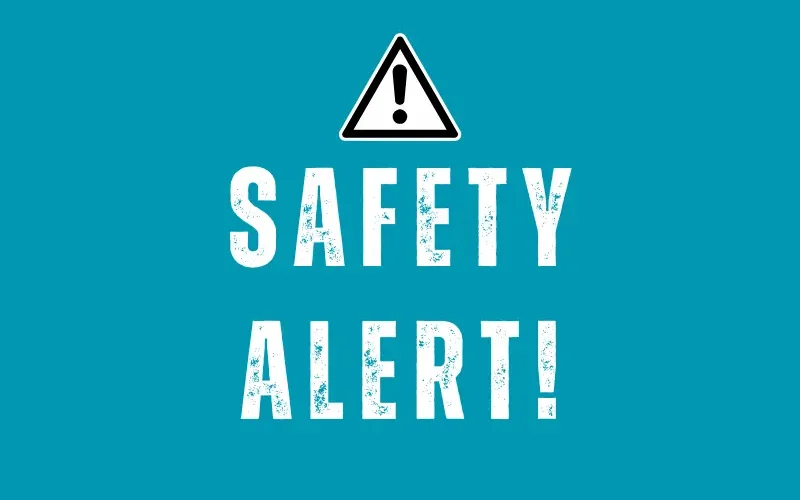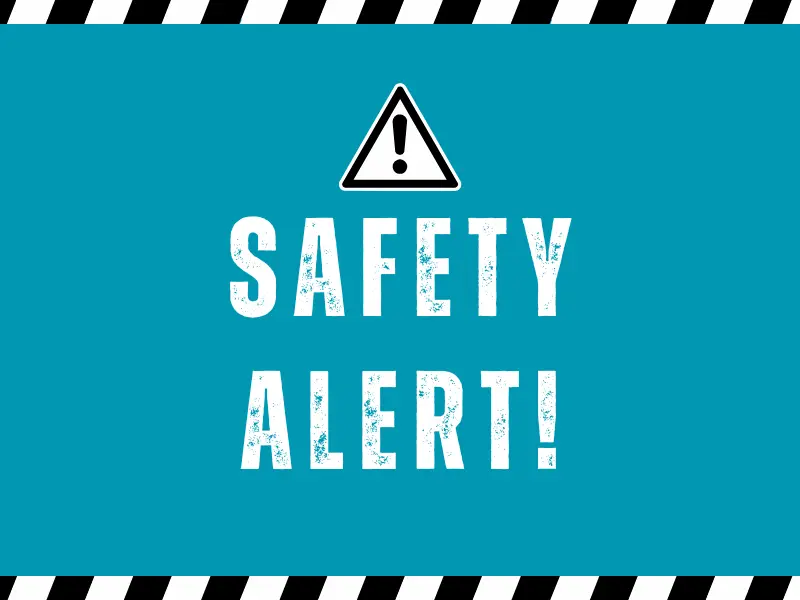Clearwater, FL — Tainted Raw Milk Sickens 21 in Florida: What You Need to Know About Liability and Legal Rights
6Aug
Clearwater, FL (August 6th, 2025) – A growing number of Florida families are facing unexpected medical crises after consuming raw milk. As of August 4, 2025, 21 people, many of them children, have fallen ill after drinking unpasteurized milk linked to a single farm in the northeast/central Florida region. According to state health officials, seven individuals were hospitalized, and two are dealing with life-threatening complications because of the tainted raw milk. This outbreak is a stark reminder that raw milk, though gaining popularity in wellness circles, poses serious, and preventable, health risks.

At Light & Wyatt Law Group, we represent individuals harmed by defective or dangerous products. If you got sick after consuming raw milk, you may have options. Contact our law group today to discuss your case in a free initial consultation. Call 727-499-9900.
Table of Contents
The Florida Raw Milk Outbreak: What Happened?
State investigators traced a wave of foodborne illness to raw milk sold by a Florida dairy that has not been publicly identified. Victims tested positive for Campylobacter and Shiga toxin-producing E. coli (STEC), both serious bacterial infections that can lead to hospitalization and long-term complications.
What’s especially troubling is that six of the affected individuals are under the age of 10. Young children are particularly vulnerable to these types of infections and often suffer more severe consequences. The Florida Department of Health flagged the implicated farm for improper sanitation and milking procedures, which likely introduced bacteria into the milk supply.
Although raw milk is illegal to sell for human consumption in Florida, it’s often marketed as pet food, a workaround some sellers use to reach health-conscious consumers. This legal loophole doesn’t prevent illness, however, or liability.
Why Raw Milk Poses a Serious Health Risk
Despite the natural image raw milk often carries, it comes with a very real risk of serious illness. The lack of pasteurization means harmful bacteria can remain in the product and multiply quickly.
Common Bacteria Found in Raw Milk
Raw milk can carry a range of pathogens, including:
- E. coli – The strain involved in this outbreak (STEC) can cause bloody diarrhea, kidney failure (especially in children), and even death.
- Campylobacter – Often causes severe gastrointestinal illness, and in some cases, long-term complications like Guillain-Barré syndrome.
- Salmonella – Known for fever, vomiting, and dehydration, especially in young children and older adults.
- Listeria – Particularly dangerous for pregnant women and immunocompromised individuals.
Even with refrigeration and careful handling, unpasteurized milk can still harbor these pathogens. Pasteurization, by contrast, kills these bacteria without affecting nutritional content.
CDC and FDA Warnings Against Raw Milk
The Centers for Disease Control and Prevention (CDC) and the Food and Drug Administration (FDA) have repeatedly warned consumers that raw milk offers no proven health benefits that outweigh its risks. In fact, a CDC report found that unpasteurized dairy products are 840 times more likely to cause foodborne illness and 45 times more likely to result in hospitalization compared to pasteurized products.
Despite these warnings, raw milk sales have increased across the U.S., fueled by misinformation and wellness marketing.
Florida’s Raw Milk Laws and Legal Loopholes
Florida law explicitly prohibits the sale of raw milk for human consumption. However, under state rules, unpasteurized milk may be sold for animal consumption if clearly labeled as pet food. This labeling requirement is intended to prevent human use, but many consumers bypass it, either unknowingly or deliberately.
Legal Gray Areas Exploited by Sellers
Raw milk vendors at farmers markets and small shops often rely on labeling tricks or verbal suggestions to promote raw milk as a natural alternative to pasteurized dairy. Some fail to clarify the risks or legality involved, and few customers realize they’re violating state law by drinking the product themselves.
The state’s regulatory system doesn’t consistently enforce these laws, allowing producers and distributors to continue selling a product that, when consumed by humans, is unlawful and unsafe.
Legal Liability for Raw Milk-Related Illnesses
If you or a loved one became sick after consuming raw milk, you may be entitled to compensation under Florida’s product liability laws.
Strict Liability for Defective or Dangerous Products
Florida applies the legal doctrine of strict liability to product liability cases. Therefore, a producer or seller can be held financially responsible for injuries caused by a defective or inherently dangerous product, even if they didn’t act negligently.
Raw milk can be considered an unreasonably dangerous product when it causes illness. In this outbreak, health authorities have already linked the contaminated milk to improper milking procedures. This finding bolsters the argument that the product was defective when sold.
Negligence and Failure to Warn
In addition to strict liability, you may also have a negligence claim if the farm failed to follow proper sanitation practices or failed to warn buyers about the risks associated with consuming raw milk. For example, if the product was sold without proper labeling, or if it was verbally promoted as safe for human use, the seller may be liable for misleading conduct.
In some cases, distributors, farmers markets, or retail locations may also be brought into the lawsuit if they enabled the product’s sale or failed to exercise due diligence.
Damages Available in Florida Product Liability Cases
When a person is harmed by a contaminated or unsafe product, Florida law allows them to pursue financial compensation through a civil claim. The severity of illness, age of the victim, and long-term impact will influence the type and amount of damages available.
Types of Compensation You May Recover
In a raw milk illness case, potential damages include:
- Medical bills – Including hospital stays, diagnostic tests, medications, and follow-up care.
- Lost wages – If time off work was required to recover or care for a sick child.
- Future medical expenses – For victims with long-term complications, such as kidney damage.
- Pain and suffering – For both physical discomfort and emotional distress.
- Punitive damages – In rare cases where the conduct was particularly reckless or deceptive.
Families of young children often face the highest medical costs and emotional toll. In those situations, strong legal representation is key to securing full and fair compensation.
Who May Be Held Responsible for Illnesses Caused by the Raw Milk?
Liability doesn’t stop at the farm. Several parties may be involved in the chain of distribution and can be held responsible for raw milk illnesses under Florida law.
Possible Defendants in a Raw Milk Claim
- The farm or dairy – If it failed to follow basic safety protocols or sanitation standards.
- Retailers or market vendors – Especially if they promoted raw milk for human use or failed to label it properly.
- Distributors – If they facilitated the movement of raw milk for illegal or unsafe purposes.
- Third-party handlers – If contamination occurred during packaging, delivery, or storage.
Each party in the distribution chain has a legal duty to ensure the safety of the products they sell. Failing to meet that duty can lead to legal exposure when injuries occur.
Protecting Florida Families From Unsafe Products
Raw milk may be legal to sell for pets in Florida, but that doesn’t make it safe, or lawful, to drink. This latest outbreak demonstrates how easily contaminated products can slip through the cracks and hurt people, especially children.
If you’ve been affected by the contaminated milk, don’t wait for the next health update to act. You may be eligible to file a claim and hold the responsible parties accountable for the harm their product caused. To discuss your options in a free initial consultation, please contact our Clearwater product liability lawyers at Light & Wyatt Law Group today. Call 727-499-9900.
